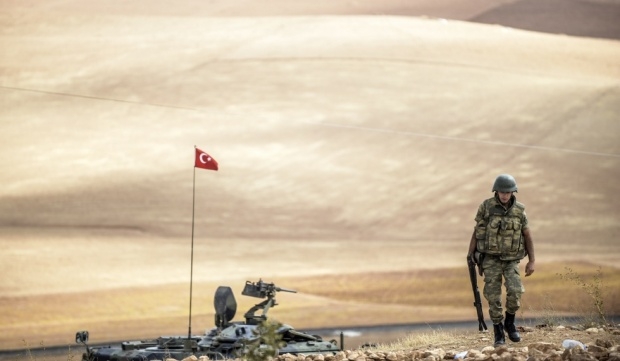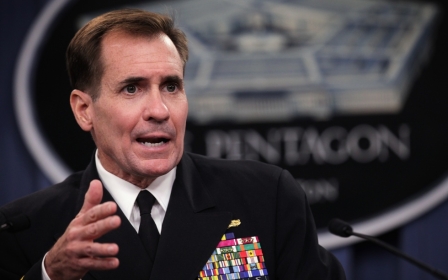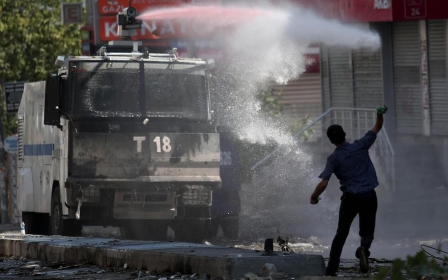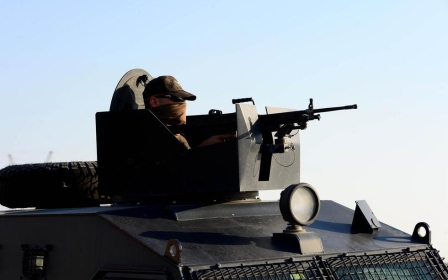Emergency NATO meeting to discuss Turkey-Syria border crisis

Envoys from all 28 NATO countries are to hold an emergency meeting on Tuesday to discuss Turkey's campaign against the Islamic State (IS) group and Kurdish militants.
The meeting in Brussels was called by Jens Stoltenberg, NATO secretary-general, at the request of Turkey, after last week’s bombing attacks on the Turkish-Syrian border and ongoing security operations in the country.
After a wave of attacks by militants on Turkish soil, the country, which had previously been reluctant to intervene, has launched raids against IS in Syria and Kurdish PKK guerrillas in northern Iraq.
It is only the fifth time in the alliance's history that a member state has requested such a meeting. Under the Article 4 North Atlantic Council founding treaty, members are allowed to request a summit if their territorial integrity or security is threatened.
It will give Turkey's NATO allies the opportunity to work out its goals and motivation, after the country has stood on the sidelines of the Syria conflict for so long, said the BBC correspondent Jonathan Beale.
IS free zone
The meeting will also provide an opportunity to discuss US and Turkish plans to set up a buffer zone.
Officials in Washington told media that the US and Turkey were working together on military plans to clear IS from parts of northern Syria, after Turkish military jets on Thursday began shelling the group in Syria for the first time since the start of the conflict in 2011.
They said an "Islamic State-free zone" would ensure greater stability along the Syria-Turkish border.
Under the agreement being reportedly finalised, the militants would be removed from a 109km stretch west of the Euphrates River, according to the Washington Post.
Such a deal would significantly increase the scope of the US-led airstrikes against IS in northern Syria, said the Post.
Last week Turkey agreed to allow the US to use its air base in Incirlik to launch airstrikes against IS.
Turkish-Kurdish tension
After IS-linked militants killed 32 people in the Kurdish-majority town of Suruc, near the Syrian border on 20 July, tensions between the outlawed Kurdistan Workers' Party (PKK) and government troops have been exacerbated.
The PKK claimed an attack which killed two Turkish police officers on Thursday. It said it was in retaliation for the Suruc bombing and what the group sees as Turkey's collaboration with IS.
In response, Turkish F-16 fighter jets hit PKK targets in northern Iraq late on Sunday, Turkish security sources said.
Turkish Prime Minister Ahmet Davutoglu has said the military operations would not have a timeframe, indicating a prolonged offensive.
Turkish operations in Syria have also led to tensions with Kurdish militia forces fighting IS in northern Syria.
On Monday Kurdish People's Protection Units (YPG) said Turkish tanks had shelled their positions near the Syrian town of Kobane.
A Turkish official said recent operations sought "to neutralise imminent threats to Turkey's regional security" and were targeting IS in Syria and the PKK in Iraq.
"We are investigating claims that the Turkish military engaged positions held by forces other than [IS]," the official said.
Kurdish forces within Syria, he added, remain "outside the scope of the current military effort".
While the US-led coalition against IS, has long awaited Turkey's involvement, if Ankara continues to see no difference between IS and the Kurdish PKK - a position repeated on Monday by Foreign Minister Mevlut Cavusoglu - then its latest move presents the rest of the coalition, in particular the Americans, with a dilemma, observers have said.
For almost a year, Kurdish rebels (the YPG, closely allied with the PKK) have been Washington's most effective ally in confronting IS on the ground in Syria.
Turkey however has no interest in promoting Kurdish success along its southern border, at a time when its own unresolved Kurdish conflict threatens to explode again, following a general election in Turkey in which the pro-Kurdish HDP party won 80 seats in parliament.
New MEE newsletter: Jerusalem Dispatch
Sign up to get the latest insights and analysis on Israel-Palestine, alongside Turkey Unpacked and other MEE newsletters
Middle East Eye delivers independent and unrivalled coverage and analysis of the Middle East, North Africa and beyond. To learn more about republishing this content and the associated fees, please fill out this form. More about MEE can be found here.




